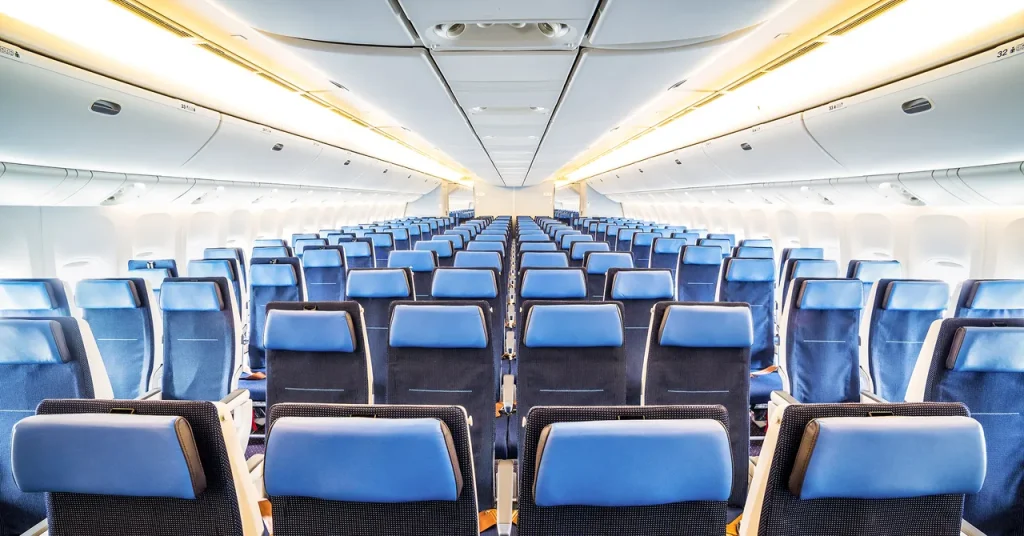By Danielle Braff
The only way to fly
Flying is such an amazing way to get you around the world, but it often comes with airport delays, baggage issues, and security nightmares. COVID-19 adds another layer of difficulty and concern for air travelers hoping to remain safe and healthy during necessary travel. Fortunately, some simple hacks can make your trip just a little easier and your entire travel experience a whole lot better.
Bring your own power strip
Yes, we’re talking about your basic multi-outlet surge protector. Why is packing this in your carry-on such a genius idea? Because when you get to the gate and find that all the plugs are taken, you can nicely ask one of the plug owners if it’s OK to swap your power strip so both of you can plug in and power up, says Cindy Richards, editor-in-chief of TravelingMom.com.
Give yourself easy access at security
One of the worst things about flying is emptying out your suitcase filled with electronics and liquids at the TSA checkpoint. But Allie Phillips, the owner of Soarin Travel in New Orleans, has a smart hack. “Packing your carry-on bag with easy access to anything that needs to be scanned separately helps,” she says. If you group all of your electronics and liquids together in a separate travel bag within your larger bag so you can grab it all at once, you won’t feel quite so frazzled.
Use a shipping service
Now that airlines frequently charge massive fees to check bags, travel expert Valerie Joy Wilson of Trusted Travel Girl opts to use a luggage shipping service like LugLess. “This way, you don’t have to carry your bags through the airport or wait to get them at the chaotic baggage claim—and you avoid the high baggage fees, since their prices start at $15 per bag,” Wilson says.
Time your travel right
Try to avoid a departure time that coincides with rush-hour traffic, says George Morgan-Grenville, CEO and founder of the U.K.-based luxury travel company Red Savannah. “It’s a pointless and stressful way of missing a flight,” he says. And while that may seem like common sense, this isn’t: If possible, avoid arriving in a destination very late at night or early in the morning, when it’ll be trickier to find a car service to take you to your destination.
Research luggage allowance for connections
Even when you’ve sufficiently packed for an international flight, your bag may be overweight for a connection, as many domestic connections have lower allowances, Morgan-Grenville says. He advises weighing your luggage ahead of time since it’s much less expensive to buy overweight allowance in advance. For example, United Airlines doesn’t allow you to exceed 50 pounds for checked bags when flying economy, while Spirit Airlines won’t let you exceed 40 pounds. You should also check out these sneaky ways to bypass airline baggage fees.
Watch what you eat and drink
To avoid bloating and making jet lag worse, Morgan-Grenville recommends drinking lots of still water, which will flush out your system and keep headaches at bay. Avoid carbonated drinks, which cause major bloat, along with alcohol, since it can be particularly dehydrating when you’re flying. Also minimize food intake, especially carbs, which your body will have difficulty digesting at high altitudes, he says.
Check your passport
Many people aren’t aware that their passports have a hidden expiration date, says Jose Bone from The Passport Office. “What I mean is that depending on where you are traveling, you may be required to have a few months of validity remaining on your passport,” he explains.
Arm yourself with information
Now more than ever, travel is full of worry and potential pitfalls. Airlines and travelers alike are doing everything they can to protect themselves, both from a health and liability perspective.
“Travel is not always an easy experience, so try to prepare yourself for potential problems,” says Liz Dahl, a travel agent based in Louisville, Kentucky, and the founder of Boomer Travel Patrol. Dahl suggests researching what to do if your luggage gets lost, if your flight gets delayed, and if bad weather changes your vacation options. It’s also smart to bring along books, magazines, snacks, and water so you don’t have to pay high prices at the airport, she says.
Set your watch to the local time
No one likes jet lag, and this trick can, well, trick your body into adjusting a lot quicker if you’re traveling across time zones. According to Scott McNeely, COO and co-founder of the experiential travel company Modern Adventure, the key is to do this with an old-fashioned watch, not your phone—and to do it early. Start wearing your time-adjusted watch for a day or so before departure to make your brain adopt the local time and reset your circadian rhythm ahead of your arrival.
Get priority boarding if you’re traveling with carry-on bags
This depends on the airline and their specific COVID-19 policies. Some airlines are restructuring boarding and deplaning practices to minimizing passengers passing each other in the crowded aisles. In more normal times in the near future, however, there may be merit to paying extra for priority. You may have to buy a more expensive seat, pay an extra $10, or have the airline’s co-branded credit card, says Miguel Suro, a Miami attorney and lifestyle writer at The Rich Miser, but it’s worth it.
Travel like a local
Andy Abramson, the CEO of Comunicano who was named Business Traveler of the Year by Business Traveler magazine in 2015, suggests always using local SIM cards in mobile phones to get better speeds, connectivity, and quality. “Uploads of photos go faster; if you need to be on a conference call, the quality is always better, as you are connecting locally to the provider’s point of presence; and there’s no need to buy any add-on bundles from your USA carrier,” he says.
Sign up for free business programs
If you have a business—even if it’s not incorporated or profitable—sign up for free business programs like American’s Business Extra, Suro advises. You’ll get points every time you or your employees fly, which are over and above your frequent-flier miles. Suro says that you can redeem those points for free flights, lounge access, upgrades, elite status, and other goodies. If you’re still worried about how flying while a global pandemic rages, check out the truth about recycled air.
Access information without Wi-Fi
Chloe Vallencia, a frequent flier and the owner of Couple-Gift, realized that she often doesn’t have easy access to Wi-Fi when she’s traveling abroad. So she uses the app Maps.Me to search for itineraries, maps, and locations. It’s easy to use and doesn’t require an Internet connection.
Check on transferable flights
Plans change, and sometimes, vacations are canceled. To add to the disaster, many flights are non-refundable, and travelers end up losing everything they shelled out for their holidays. “A very costly mistake many still do is not checking whether their flight is transferable,” says Galena Stavreva, a London-based frequent flier and travel expert. “If it is, the name of the passenger can be changed, the reservation can be sold to someone else, and the seller can recover at least some of the cost of the flights.” So before booking your flight, check ahead of time to see the restrictions—and consider not booking the flight (even if it seems like a good deal) if it’s not transferable. Next, check out the 22 things your flight attendant won’t tell you.
Courtesy Reader’s Digest










